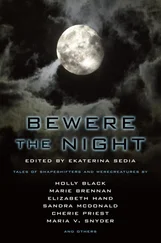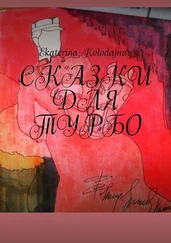Ekaterina Sedia - Stories
Здесь есть возможность читать онлайн «Ekaterina Sedia - Stories» весь текст электронной книги совершенно бесплатно (целиком полную версию без сокращений). В некоторых случаях можно слушать аудио, скачать через торрент в формате fb2 и присутствует краткое содержание. Жанр: Современная проза, на английском языке. Описание произведения, (предисловие) а так же отзывы посетителей доступны на портале библиотеки ЛибКат.
- Название:Stories
- Автор:
- Жанр:
- Год:неизвестен
- ISBN:нет данных
- Рейтинг книги:3 / 5. Голосов: 1
-
Избранное:Добавить в избранное
- Отзывы:
-
Ваша оценка:
- 60
- 1
- 2
- 3
- 4
- 5
Stories: краткое содержание, описание и аннотация
Предлагаем к чтению аннотацию, описание, краткое содержание или предисловие (зависит от того, что написал сам автор книги «Stories»). Если вы не нашли необходимую информацию о книге — напишите в комментариях, мы постараемся отыскать её.
Stories — читать онлайн бесплатно полную книгу (весь текст) целиком
Ниже представлен текст книги, разбитый по страницам. Система сохранения места последней прочитанной страницы, позволяет с удобством читать онлайн бесплатно книгу «Stories», без необходимости каждый раз заново искать на чём Вы остановились. Поставьте закладку, и сможете в любой момент перейти на страницу, на которой закончили чтение.
Интервал:
Закладка:
“Uh huh.”
“Want to get some tea?”
“Okay. But let’s go outside.”
Emari glanced at the window. Heavy clouds rendered the world grey-low enough UV to venture outside for a few minutes. “Sure.”
The two women strolled along one of the paths that transected the institute’s garden. Initially, it was meant as an enticement for the visitors and the advertisement for the donors, showcasing all of the Institute’s achievements; now, Willow and Emari exchanged a sad smile at the sight of these monstrous plants, violet and bronze, their leaves leathery, their stems bulbous, ill. There was no funding to maintain the garden, and only the ugliest and the most resilient plants persisted, UV light be damned.
The women sipped their tea tasting of grass-the best they grew in Alaska.
“Look at those colors.” Willow pointed out an especially brilliant plant, streaked in florid bronze and dark purple.
“Yeah,” Emari said. “Wild transposons are turning on. I wonder if they would do a better job than us.” She drained her cup and turned to Willow. “So what’s with you and viruses?”
Willow wasn’t sure if she was asking about her skin and shrugged. “Well. Human history was run by viruses. We wouldn’t even be in the Americas if the Spaniards’ viruses didn’t kill off the locals. They wouldn’t need so many slaves, too, so there would be no African Diaspora. The influenza epidemics helped the Allies to defeat Germany in the WWI, so without it… who knows? And if it wasn’t for AIDS and Ebola, we wouldn’t all fit in Alaska.”
“And?”
“And it’s the same with evolution, I think. How many genes were translocated by viruses? Even your transposons are just viruses without anything but the DNA.”
“That’s why I love them,” Emari said. “Transposon is a perfectly abstract parasite.”
“Well. They are good at it, you know? I can’t help but think that we’re just their tools, letting them do what they do best. Bringing them wherever they want to go.”
“So evolution and human history are just a massive viral conspiracy.” Emari was not laughing anymore and looked at Willow with worry in her green eyes.
Willow shrugged. “Do you really feel that in your relationship with transposons you’re the one in control?”
Emari shook her head. “It’s a battle, no doubt. But may I ask why you’re helping them?”
“This?” Willow raised her hand. “I’m just reversing the treatment I had after I was born.”
“Oh. It is quite smart, actually; I hear that melanin offers some protection against UV. Soon, everyone will be doing it.”
Willow cringed. If Emari was right, soon everyone would be like Willow, the color of their skin divorced from meaning or history. It would be just an adaptive trait. Like the violet streaks on the corn.
Willow woke up in the middle of the night, her hair damp with sweat, her thoughts more lucid than ever, the skin on her hands and feet burning. She sat up and stared at the billowing of the white curtains on the windows. The answer came to her in her fevered sleep, and for a while she wasn’t able to accept it.
The cancer, the dying corn, her own misery; it all happened because they had forgotten who was the master in this relationship and who was the servant. Things went bad because people decided to manipulate the viruses without understanding them. From the very first pox-infected blanket, things went wrong. Viruses did not take kindly to their rightful place being usurped.
Her legs wobbled under her as she stood and threw on some clothes. She was going to set things right, to let the viruses roam free like they were meant to, to paint their unfathomable designs in skin and leaves, without interference from human meddlers.
The Institute was empty, except for a security guard who gave her an indifferent look. No doubt, he was used to wild-haired scientists experiencing breakthroughs and running for their sequencers at any hour of the night. Willow waved at him and stumbled for the elevator.
She stopped by the lab to load up a cart with cell cultures that harbored viruses of every stripe with every imaginable corn gene inserted into them, and pushed it to the greenhouse, often stopping to wipe the sweat that ran down her face. She tried not to think about whether it was the virus inside of her that pushed her on, getting giddy at the impending freedom of its brethren… she chased such thoughts away.
In the greenhouse, she flicked on the daylights, illuminating the experimental plants in all their sickly, tumorous nudity. If she didn’t do something, they would never get it right. People would starve. People would burn to the crisp and die. They would poison what remained of the air and the water. It wasn’t their fault; they were just not equipped to do the viruses’ job. She had to trust the viruses to make it better.
Willow emptied the dishes over the plants, smearing thick translucent cellular jelly over leaves and stems. She pushed apart the heavy glass panels that protected the plants from the ravages of the outside air and gulped the night and the coolness with wide-open mouth. She poured the leftover viral cultures over the plants in the garden below and threw the empty Petri dishes after them.
She waited for the sound of shattering glass, gripping the windowsill. The creases on the joints of her fingers looked pitch black and she could feel the restless shimmying and shifting of the virus in her blood. It made her hair sing like taut violin strings, it made her skin burn.
Willow had to lean against the wall as her legs grew weak. She felt no fear, only the calm assurance that the plants would flourish. And after that, she would find a way to liberate the human viruses, to let them shape the humans as they had been doing for thousands of years.
She stroked her skin, burning, hot to the touch, almost smoldering under the viral assault. “Be still,” she whispered. “I will take good care of you.”
Copyright (c) 2007 Ekaterina Sedia
By the Liter
My neighbor, businessman Ipatov, was killed a few years ago, back when they still sold beer by the liter. I remember him because he was my first.
I’d just returned from the corner kiosk, my shirt drenched with cold condensation from the flank of a five-liter beer-filled jug I held against my chest. Outside of my apartment building I heard sirens and saw the yellow police cruisers and a white ambulance van with a red cross on its pockmarked side. My neighbor Petro, a middle-aged Ukrainian with heavy brows and a heavier accent, watched the commotion of people and vehicles and dogs from his second-story balcony.
“Petro,” I called. “What happened?”
Petro looked down at me. His wifebeater bore a fresh oil stain that made the fabric transparent; his fleshy nipple and the surrounding swirl of black chest hair stood out in naked relief against the oil spot. “Huh,” he said. “What happened. Guess three times.”
I stopped for a smoke and a rubbernecking as the cops went inside, and the paramedics brought out the gurney with the lifeless body under a white sheet. The wind snagged the edge of the sheet and it fluttered, exposing the bluing face of businessman Ipatov and his naked shoulder, branded with the cruel marks of the electric iron.
“Racketeers,” I informed Petro.
He scoffed. “You don’t say.”
His scorn was justified, I thought as I transferred the jug of beer from one cradling arm to the other and ashed my cigarette with a flick of lower lip. Racketeers overtook cancer, heart disease and traffic accidents on the list of death causes of common businessmen somewhere in the late eighties; by the early nineties, they had all but run the other ailments off the mortality and morbidity reports. As Russian business grew healthier, so did its practitioners-nary a single one of them died of any diseases.
Читать дальшеИнтервал:
Закладка:
Похожие книги на «Stories»
Представляем Вашему вниманию похожие книги на «Stories» списком для выбора. Мы отобрали схожую по названию и смыслу литературу в надежде предоставить читателям больше вариантов отыскать новые, интересные, ещё непрочитанные произведения.
Обсуждение, отзывы о книге «Stories» и просто собственные мнения читателей. Оставьте ваши комментарии, напишите, что Вы думаете о произведении, его смысле или главных героях. Укажите что конкретно понравилось, а что нет, и почему Вы так считаете.












